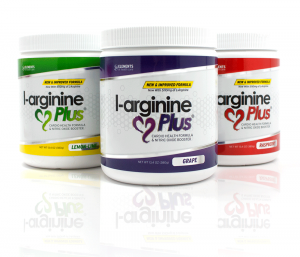Sugar is found in various food products, but there may be a connection between sugar and heart disease. Is sugar bad for your heart? Let’s find out.
If you have a sweet tooth and love eating desserts, we have bad news for you: sugar may be bad for your heart. According to preventive cardiology nutrition specialist Kate Patton, MEd, RD, CSSD, LD, an excess in sugar negatively affects your heart. “Excess sugar can increase the risk of heart disease, both directly and indirectly,” says Patton.
Sugar and Your Heart
 Research shows that eating a lot of added sugars can greatly increase the risk of dying from heart disease. One of the ways sugar can impact your heart health is through weight gain, which increases the risk of diabetes, hypertension, and high cholesterol. Furthermore, if your diet consists of a lot of processed foods and sweets, chances are you’re leaving out healthier options.
Research shows that eating a lot of added sugars can greatly increase the risk of dying from heart disease. One of the ways sugar can impact your heart health is through weight gain, which increases the risk of diabetes, hypertension, and high cholesterol. Furthermore, if your diet consists of a lot of processed foods and sweets, chances are you’re leaving out healthier options.
Studies also show that sugar can affect your heart and arteries directly by increasing triglycerides, LDL cholesterol, blood pressure, and inflammation. Having high levels of triglycerides, LDL (“bad”) cholesterol, and blood pressure can clog your arteries and increase the risk of heart disease. Moreover, chronic inflammation can put stress on your heart and blood vessels, raising the risk of heart disease.
Too Many Added Sugars
There are two main types of sugar: natural sugars, found in fruits, milk, and other natural foods, and added sugars. While natural sugars can be part of a healthy diet, added sugars can negatively impact your health.
They are common ingredients in processed foods like soda, cookies, bread, soups, and other unexpected places. According to the American Heart Association, you should limit your intake to about 100 calories (6 teaspoons) per day.
Cutting Back on Sugar
Because nutrition labels are required to show added sugars, it’s easy to keep track of how much of it is in your diet. If you want to cut back your added sugar intake, keep in mind which types of foods have a lot of it and limit it (or remove it altogether). For example, sugary drinks like juices and soft drinks are a major source of it, with one can having more than the recommended daily limit. “The number one thing you should do to lower sugar intake: Don’t drink your sugar,” says Patton.
Since added sugar goes by a lot of names, it’s also good to know the different “aliases” it goes under. These include agave nectar, barley malt, cane juice, cane syrup corn syrup. Dextrose, fructose, maltose, sucrose, honey, molasses, and rice syrup. Finally, swap out added sugar for healthier alternatives like fruit and other natural sweeteners. “You don’t have to avoid sugar completely, but moderation is key,” Patton says. “Cutting back and finding healthy substitutes is good for your heart and your overall health.”
The Outlook
 You don’t have to forsake every product with added sugar, but be mindful of how much you’re putting in your body. Consuming too much can negatively impact your health and even lead to cardiovascular disease.
You don’t have to forsake every product with added sugar, but be mindful of how much you’re putting in your body. Consuming too much can negatively impact your health and even lead to cardiovascular disease.
If you want to protect your heart and health, eat a well-balanced diet, exercise regularly, and take supplements like L-arginine Plus. Its ingredients naturally promote your heart health by boosting circulation, blood pressure, and cholesterol health. Try L-arginine Plus along with a healthy diet if you want to effectively and safely promote your heart health.

